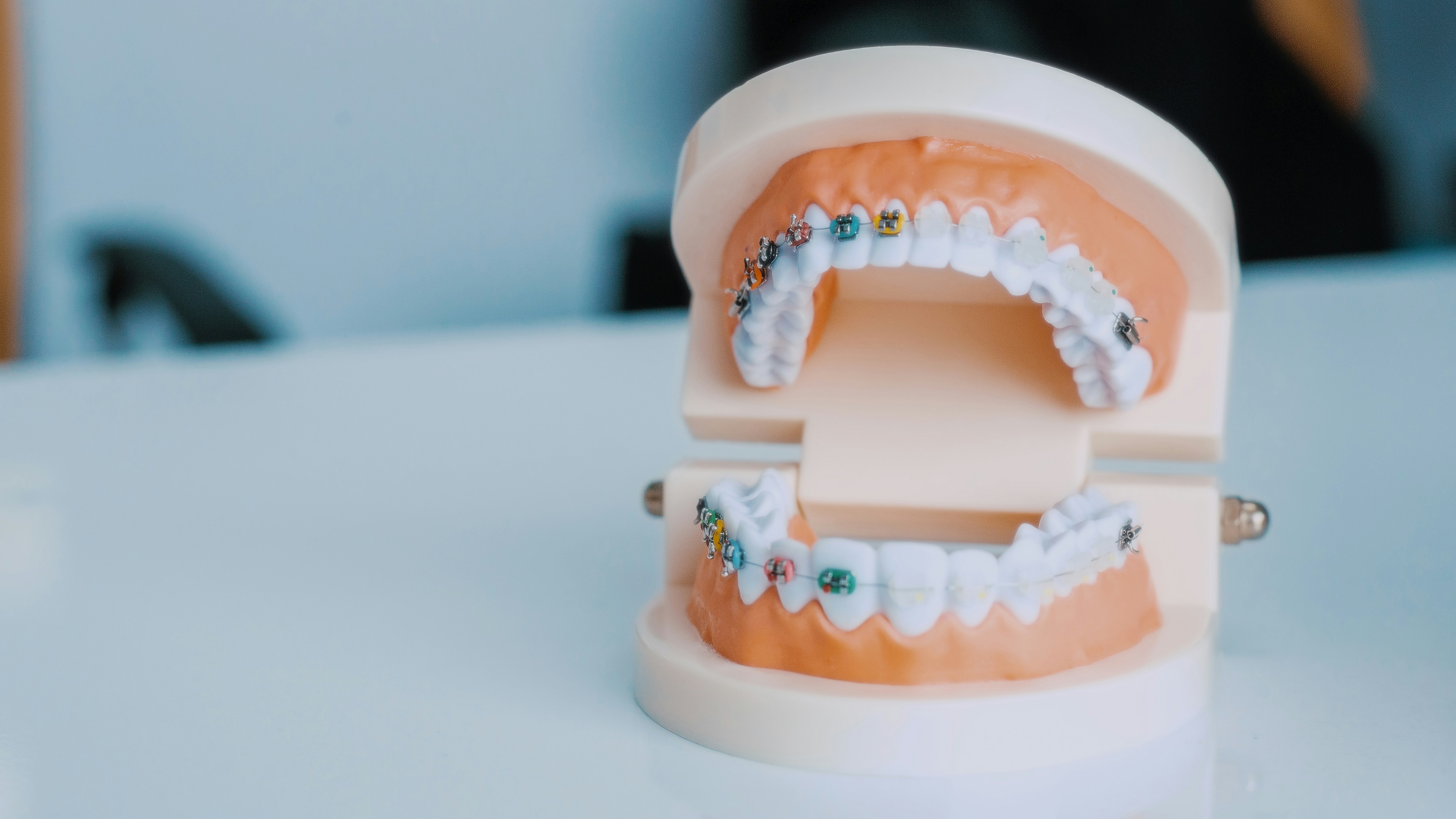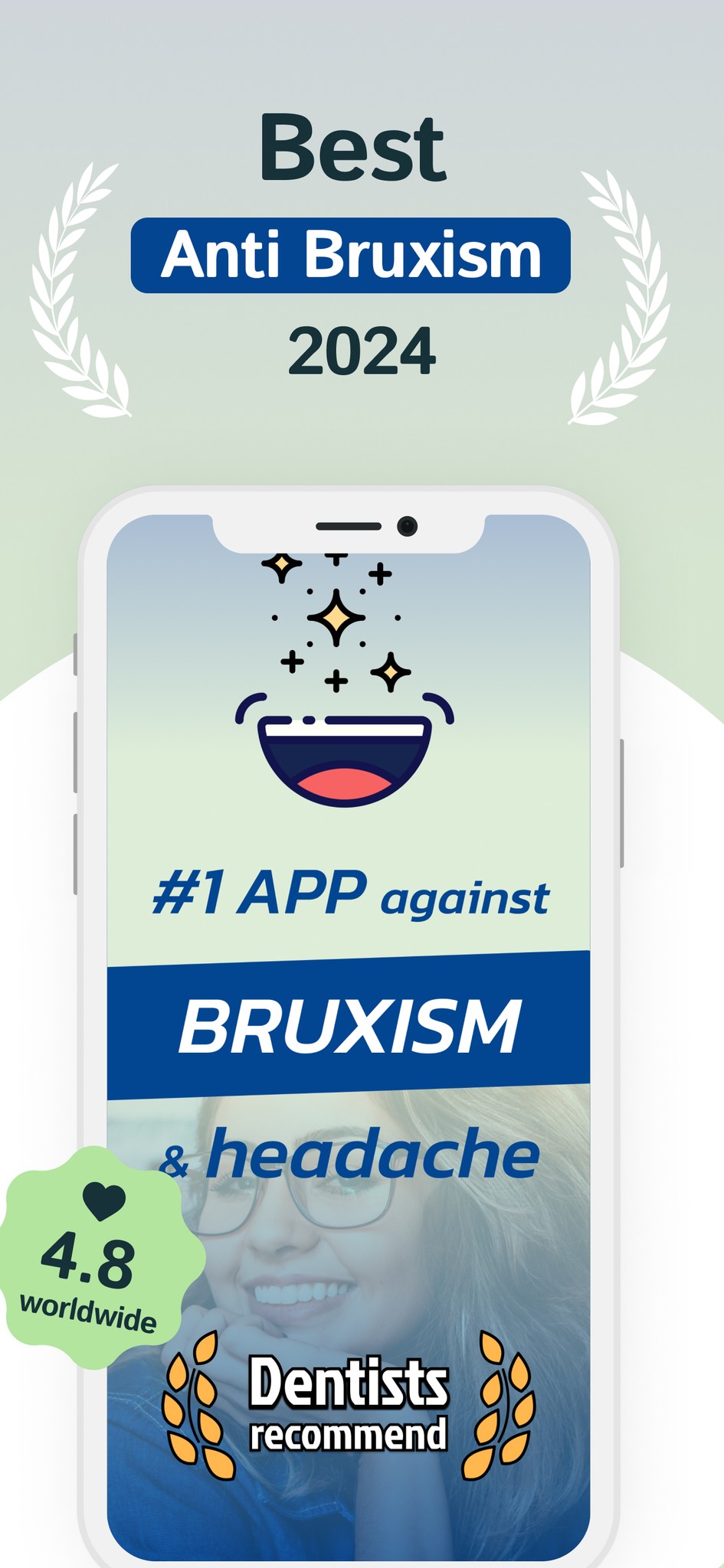
25 oct. 2024
The Connection Between Stress and Bruxism: Strategies for Relief
Bruxism, or the involuntary grinding and clenching of teeth, is often linked to various factors, with stress being one of the most significant contributors. Understanding the relationship between stress and bruxism is crucial for effective management and relief. In this article, we will explore how stress impacts bruxism and share practical strategies to help you manage both conditions. Plus, we'll highlight how the Bruxism+ app can support your journey to relief.
How Stress Contributes to Bruxism
Stress triggers a fight-or-flight response in the body, leading to muscle tension, increased heart rate, and heightened anxiety. This tension can extend to the jaw muscles, resulting in teeth grinding. Key points to consider include:
Emotional Stress: Daily stressors such as work pressure, relationship issues, or financial concerns can lead to increased jaw tension and grinding during the night.
Physical Stress: Physical discomfort or pain in the body can also manifest as bruxism, as the body unconsciously seeks to relieve that tension through grinding.
Sleep Disturbances: Stress often disrupts sleep patterns, leading to insomnia or restless nights, which can further exacerbate bruxism episodes.
Recognizing the role of stress in bruxism is the first step toward finding relief.
Effective Stress Management Techniques
Here are some practical strategies to help manage stress and, in turn, reduce bruxism:
Mindfulness and Meditation: Practicing mindfulness techniques can help calm the mind and reduce anxiety. Consider using the Bruxism+ app for guided relaxation exercises to help you unwind.
Regular Exercise: Physical activity is a great way to relieve stress and tension. Aim for at least 30 minutes of moderate exercise most days of the week.
Deep Breathing Exercises: Practicing deep breathing can help activate the body’s relaxation response, reducing overall tension. Focus on slow, deep breaths for several minutes each day.
Adequate Sleep: Prioritize getting enough restorative sleep to help your body recover from stress. The Bruxism+ app can assist in tracking your sleep patterns and bruxism episodes, allowing you to identify trends.
Bruxism+ as a Tool for Relief
The Bruxism+ app is an invaluable resource for anyone dealing with bruxism related to stress. With features that allow users to log stress levels, track grinding episodes, and access a variety of relaxation techniques, the app empowers you to take control of your bruxism management. By understanding the relationship between stress and grinding, you can implement effective strategies for relief.
Conclusion
Stress is a significant contributor to bruxism, making it essential to address both conditions for effective management. By implementing stress-reduction techniques and utilizing the Bruxism+ app, you can minimize teeth grinding and enhance your overall well-being. Remember, taking proactive steps to manage stress can lead to a healthier, more peaceful life free from the discomfort of bruxism.
Bruxism, or the involuntary grinding and clenching of teeth, is often linked to various factors, with stress being one of the most significant contributors. Understanding the relationship between stress and bruxism is crucial for effective management and relief. In this article, we will explore how stress impacts bruxism and share practical strategies to help you manage both conditions. Plus, we'll highlight how the Bruxism+ app can support your journey to relief.
How Stress Contributes to Bruxism
Stress triggers a fight-or-flight response in the body, leading to muscle tension, increased heart rate, and heightened anxiety. This tension can extend to the jaw muscles, resulting in teeth grinding. Key points to consider include:
Emotional Stress: Daily stressors such as work pressure, relationship issues, or financial concerns can lead to increased jaw tension and grinding during the night.
Physical Stress: Physical discomfort or pain in the body can also manifest as bruxism, as the body unconsciously seeks to relieve that tension through grinding.
Sleep Disturbances: Stress often disrupts sleep patterns, leading to insomnia or restless nights, which can further exacerbate bruxism episodes.
Recognizing the role of stress in bruxism is the first step toward finding relief.
Effective Stress Management Techniques
Here are some practical strategies to help manage stress and, in turn, reduce bruxism:
Mindfulness and Meditation: Practicing mindfulness techniques can help calm the mind and reduce anxiety. Consider using the Bruxism+ app for guided relaxation exercises to help you unwind.
Regular Exercise: Physical activity is a great way to relieve stress and tension. Aim for at least 30 minutes of moderate exercise most days of the week.
Deep Breathing Exercises: Practicing deep breathing can help activate the body’s relaxation response, reducing overall tension. Focus on slow, deep breaths for several minutes each day.
Adequate Sleep: Prioritize getting enough restorative sleep to help your body recover from stress. The Bruxism+ app can assist in tracking your sleep patterns and bruxism episodes, allowing you to identify trends.
Bruxism+ as a Tool for Relief
The Bruxism+ app is an invaluable resource for anyone dealing with bruxism related to stress. With features that allow users to log stress levels, track grinding episodes, and access a variety of relaxation techniques, the app empowers you to take control of your bruxism management. By understanding the relationship between stress and grinding, you can implement effective strategies for relief.
Conclusion
Stress is a significant contributor to bruxism, making it essential to address both conditions for effective management. By implementing stress-reduction techniques and utilizing the Bruxism+ app, you can minimize teeth grinding and enhance your overall well-being. Remember, taking proactive steps to manage stress can lead to a healthier, more peaceful life free from the discomfort of bruxism.
Bruxism, or the involuntary grinding and clenching of teeth, is often linked to various factors, with stress being one of the most significant contributors. Understanding the relationship between stress and bruxism is crucial for effective management and relief. In this article, we will explore how stress impacts bruxism and share practical strategies to help you manage both conditions. Plus, we'll highlight how the Bruxism+ app can support your journey to relief.
How Stress Contributes to Bruxism
Stress triggers a fight-or-flight response in the body, leading to muscle tension, increased heart rate, and heightened anxiety. This tension can extend to the jaw muscles, resulting in teeth grinding. Key points to consider include:
Emotional Stress: Daily stressors such as work pressure, relationship issues, or financial concerns can lead to increased jaw tension and grinding during the night.
Physical Stress: Physical discomfort or pain in the body can also manifest as bruxism, as the body unconsciously seeks to relieve that tension through grinding.
Sleep Disturbances: Stress often disrupts sleep patterns, leading to insomnia or restless nights, which can further exacerbate bruxism episodes.
Recognizing the role of stress in bruxism is the first step toward finding relief.
Effective Stress Management Techniques
Here are some practical strategies to help manage stress and, in turn, reduce bruxism:
Mindfulness and Meditation: Practicing mindfulness techniques can help calm the mind and reduce anxiety. Consider using the Bruxism+ app for guided relaxation exercises to help you unwind.
Regular Exercise: Physical activity is a great way to relieve stress and tension. Aim for at least 30 minutes of moderate exercise most days of the week.
Deep Breathing Exercises: Practicing deep breathing can help activate the body’s relaxation response, reducing overall tension. Focus on slow, deep breaths for several minutes each day.
Adequate Sleep: Prioritize getting enough restorative sleep to help your body recover from stress. The Bruxism+ app can assist in tracking your sleep patterns and bruxism episodes, allowing you to identify trends.
Bruxism+ as a Tool for Relief
The Bruxism+ app is an invaluable resource for anyone dealing with bruxism related to stress. With features that allow users to log stress levels, track grinding episodes, and access a variety of relaxation techniques, the app empowers you to take control of your bruxism management. By understanding the relationship between stress and grinding, you can implement effective strategies for relief.
Conclusion
Stress is a significant contributor to bruxism, making it essential to address both conditions for effective management. By implementing stress-reduction techniques and utilizing the Bruxism+ app, you can minimize teeth grinding and enhance your overall well-being. Remember, taking proactive steps to manage stress can lead to a healthier, more peaceful life free from the discomfort of bruxism.
Nos dernières histoires :


15 nov. 2024
Dietary Changes That May Help Reduce Bruxism Symptoms


11 nov. 2024
The Impact of Jaw Alignment on Bruxism: What You Need to Know


8 nov. 2024
Comprendre l'apnée du sommeil et son lien avec le bruxisme
Voir tous les posts
Médias sociaux
Médias sociaux
Médias sociaux


